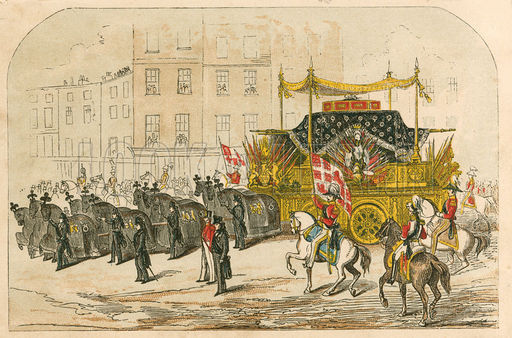State Funeral of Arthur Wellesley, 1st Duke of Wellington 18th November 1852 #OTD #militaryhistory
- Si Biggs
- Nov 20, 2017
- 2 min read
Field Marshal Arthur Wellesley, 1st Duke of Wellington, KG, GCB, GCH, PC, FRS (1 May 1769 – 14 September 1852) was an Anglo-Irish soldier and statesman who was one of the leading military and political figures of 19th-century Britain. His defeat of Napoleon at the Battle of Waterloo in 1815 put him in the first rank of Britain's military heroes.

Wellington died at Walmer Castle in Deal on 14 September 1852. This was his residence as Lord Warden of the Cinque Ports. Walmer Castle was said to have been his favourite residence. He was found to be unwell on that morning and was aided from his military campaign bed (the same one he used throughout his historic military career) and seated in his chair where he died. His death was recorded as being due to the aftereffects of a stroke culminating in a series of seizures. He was aged 83.

Although in life he hated travelling by rail (after witnessing the death of William Huskisson, one of the first railway accident casualties), his body was then taken by train to London, where he was given a state funeral—one of only a handful of British subjects to be honoured in that way (other examples are Lord Nelson and Winston Churchill)—and the last heraldic state funeral to be held in Britain. The funeral took place on 18 November 1852.
At his funeral there was hardly any space to stand because of the number of people attending, and the effusive praise given him in Tennyson's "Ode on the Death of the Duke of Wellington" attests to his stature at the time of his death. He was buried in a sarcophagus of luxulyanite in St Paul's Cathedral next to Lord Nelson.
A bronze memorial was sculpted by Alfred Stevens, and features two intricate supports: "Truth tearing the tongue out of the mouth of False-hood", and "Valour trampling Cowardice underfoot". Stevens did not live to see it placed in its home under one of the great arches of the Cathedral.

